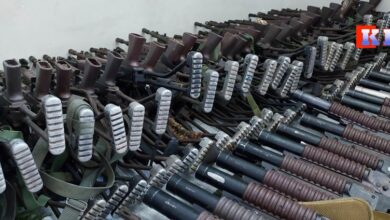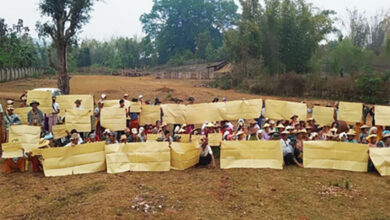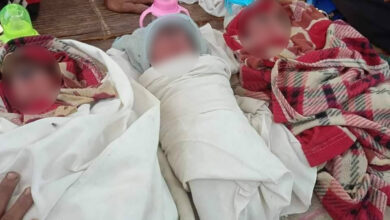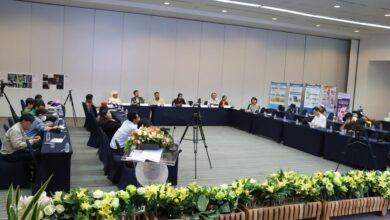Families Moved to Make Way for Japan-Burma Thilawa Project Reported to be Living in Deplorable Conditions
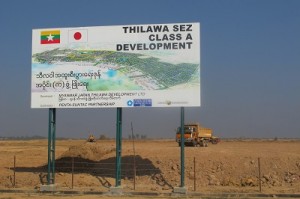
Families moved by the Burmese government to make way for a special economic zone in Thilawa have been living in deplorable conditions, leaving them hungry and sick, a report by a human rights organisation has found.
The report, by the New York based, Physicians for Human Rights, said that the Burma government had violated international standards when it moved the families to make way for the Japanese-Burmese project.
Widney Brown, from PHR, condemned the project as having a devastating impact on the lives of locals. “The Thilawa project exemplifies how devastating forced displacement can be on local communities when governments completely disregard human rights laws for the sake of a business development.”
The Thilawa SEZ, located near the Thilawa port, covers an area of 2,400 hectares and is mostly farmland, but it is planned that it will become factory sites.
“Phase one of the project, which began in 2013, resulted in the forced displacement of 68 households. Phase two of the project will displace an additional 846 households.” The PHR report documented that the Japanese and Burmese governments are working alongside three Japanese companies and an unknown number of Burmese businesses to develop the proposed site. The project is expected to make $53 million in profits by 2018, PHR noted.
PHR found that, while monetary compensation was granted for crops, animals and houses – sanitation conditions in the new locations that people were moved to were hazardous to the health of the families and did not even meet the international standard for refugee camps, let alone civilian areas allocated for the displacement of populations due to industry development in peacetime.
“All of the wells and pumps provided by the government were improperly constructed and found to be contaminated with bacteria found in human faeces.” The PHR report stated. “Given that the displacement… was planned, the situation for those who were relocated should be significantly higher.”
In interviews with 22 people affected by the displacement, PHR found that average household income dropped by 78 per cent, with nine out of ten household reporting not having enough money to put food on the table.
Widney Brown called on Burma and Japan to behave responsibly. “The Burmese and Japanese governments should work to improve the living conditions for those displaced by this misguided venture, and ensure that this disaster is not repeated when hundreds of other families are relocated for future development projects.”
The Thilawa SEZ followed a memorandum of understanding signed between the Japanese and Burmese governments in 2012, where the Japanese granted a $500 million loan to help start the project.
Currently, the Japan International Cooperation Agency (JICA), an independent government agency, is coordinating Japan’s interests in Thilawa alongside the Japanese companies Mitsubishi, Sumitomo, and Marubeni – all of which have a 49% stake in the project. The Thilawa SEZ Management Committee -a Burmese government agency – manages the remaining 51% of the project alongside Myanmar Thilawa SEZ Holdings Public Ltd, which represents a consortium of nine Burmese companies.

